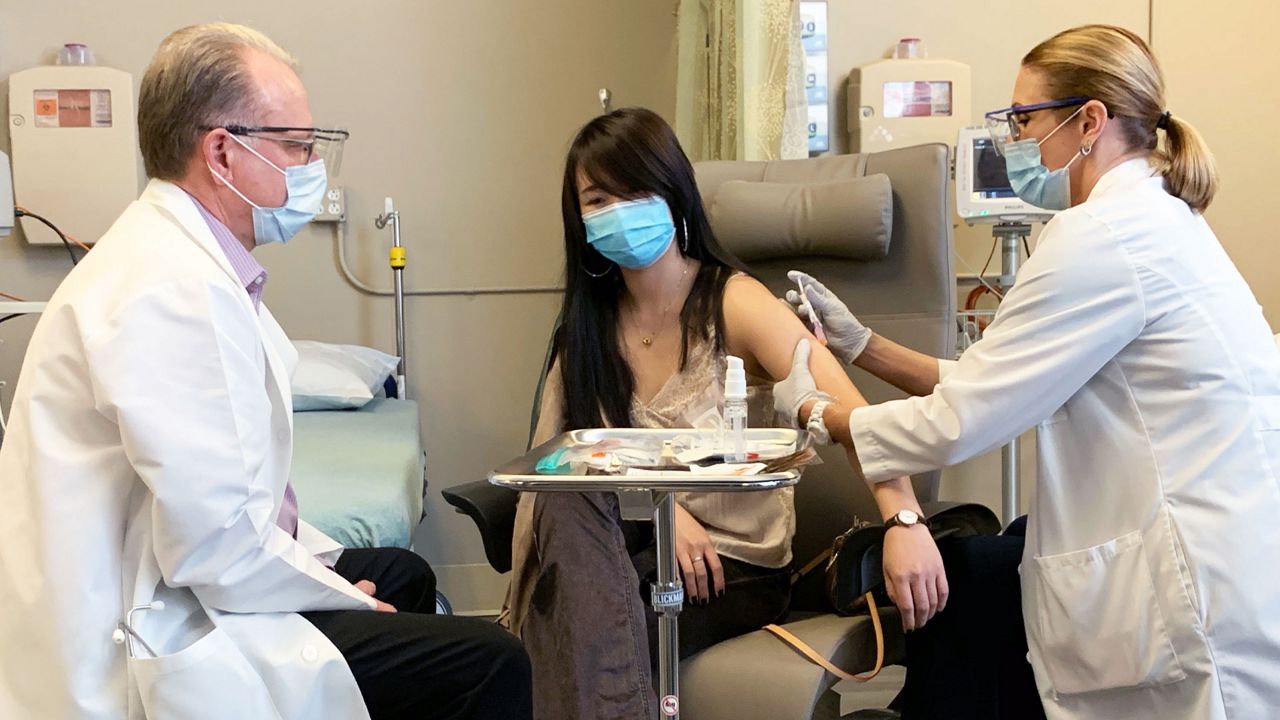The push to get as many people as possible to get their COVID-19 shots in the coming months will be an undertaking that hasn't been seen in generations.
Indeed, decades ago when Jonas Salk developed the first polio vaccine, public health officials began a concerted effort to get people -- mostly children and young people -- inoculated with a major education campaign. That effort is now being studied by doctors as a COVID-19 vaccine is about to made available in the coming weeks.
And a lot of that is going to depend on personal doctors -- typically the medical experts many people are able to consult on a first-hand basis.
"We need all of the New Yorkers to get the vaccine in order for us to have what we call herd immunity where enough people have taken the vaccine that those who can't take the vaccine are not vulnerable to the virus anymore," said Dr. Bonnie Litvack, the president of the Medical Society of the State of New York. "The reason it's important our doctors have buy in is that most people get their medical information is from their personal physician. So if their personal physician says this is safe, then more people will take the vaccine."
The first batch of the COVID-19 vaccine from Pfizer will be made available on Dec. 15, with nursing home residents and staff the first to receive it. Frontline pandemic health care workers are also due to be among the first to be vaccinated.
New York officials, including Gov. Andrew Cuomo, are planning a major public push to get as many people vaccinated, including low-income communities and communities of color. Cuomo this week pointed to vaccine skepticism and anti-vaccine advocates who have spread false and misleading information about vaccines as a counterweight to a factual public push.
Doctors can also play a role with their patients, Litvack said.
"Patients should be speaking with their doctors about what the safety is about the vaccine, about what we know about it to date," she said. "As we go along, we're going to have more information. Right now what we know is the vaccine seemes to be safe and it seems to be effective -- two excellent things and good news for us to get to that light at the end of the tunnel and coming out of this COVID crisis."
But when will things return to normal? When will people be able to feel safe enough to return to eat-in restaurants, gyms and other public gathering spaces that were taken for granted prior to the crisis? Time and the logistics of vaccine distribution will tell, Litvack said, but the expectation is a vaccine will be prevalent by September of next year.
"I don't know if we have all the answers to that and I wish my crystal ball said it was tomorrow," she said, adding, "I'm hoping it will be sometime this summer. That would be wonderful. It's going to depend on vaccine supplies, how much we get and how much vaccine buy in we get."



